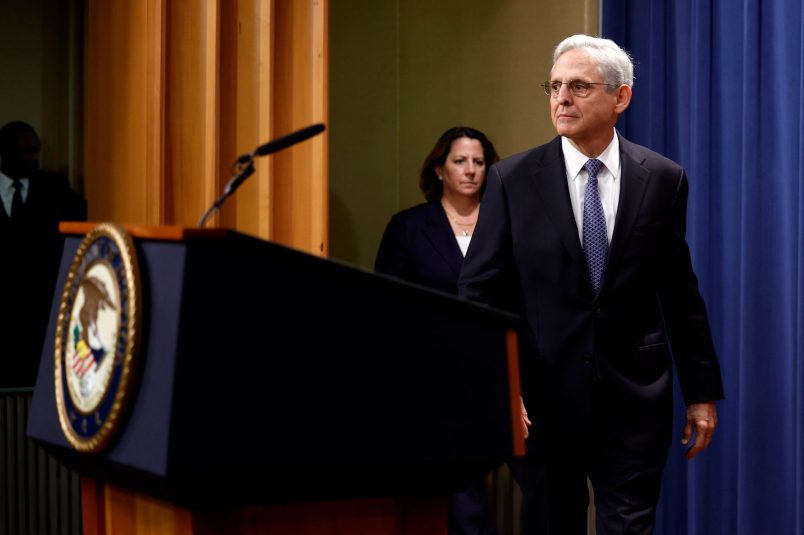Here’s a really must-read article out this morning from the Post, “FBI resisted opening probe into Trump’s role in Jan. 6 for more than a year.” Unless the reporting comes under serious question, and given who the reporters are I doubt that will be the case, it should be one of the canonical articles required to understand this story. And that story is how it is we only got to the present point in the investigation more than two years after the events of January 6th, 2021.
The key mystery to me is the headline. Unless my brain isn’t working this morning there’s very little in the piece to in any way back it up. FBI Director Chris Wray definitely took a hands-off approach. But the article is quite clear that the main reason for the delay came from top-level appointees at the DOJ — specifically Garland and Monaco and those working under them.
Even though I’ve been highly critical of Garland, I would be remiss if I didn’t say that you don’t have to be a low-energy fuddy-duddy to think it’s important to be methodical in deciding to investigate the defeated former president for what amounts to sedition, whether or not that’s the technical charge, especially when you’re the appointee of the man who defeated him. But of course that must be weighed against whether the defeated President did commit seditious conspiracy (regardless of the technical charge) against the United States. A key through-line in the piece was whether the investigation would go from the bottom up or the top down. In other words, whether you start prosecuting rioters on the ground and follow where the evidence takes you or whether you also investigate the planners at the top from the first. Even “resisted” doesn’t really quite capture what was happening here. It was sticking to this bottom-up strategy.
As portrayed in the article, the bottom-up approach governed well into 2022. But eventually it became clear you just weren’t going to get to the top from there. As this realization was becoming clear, public reporting was uncovering more and more about the conspiracy at the top. Another big factor was the work of the Jan. 6 committee, which seemed to play at least some role in galvanizing a more aggressive approach.
One interesting detail is that some career Trump appointee holdovers were on the more aggressive side of this argument.
Reading my summary will likely give you the impression that the story is “Garland was too cautious,” or “Garland was too sensitive to optics and claims of politicization.” But I would really caution you to hold up on that impression until you read the article. It’s not that it’s wrong necessarily. But the article shows a lot of different and sometimes contradictory moving pieces. It’s not simple. We should also remember that an article like this often leans heavily on sources who were on the losing side of early arguments at DOJ and are now saying ‘I told you so’ as the case appears to be moving toward indictments of high level figures. That doesn’t mean they’re wrong. But these dynamics are important to recognize. Meanwhile, Garland defenders would likely say, maybe it took longer than you wanted, but we’re here now, aren’t we?
What it all amounts to is that this is a really important article to read.


